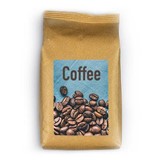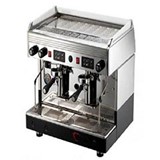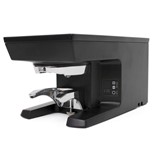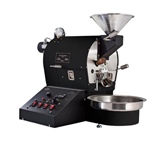Key takeaways
- Commercial coffee machine prices range from $2,000 to $20,000+, depending on type, size, and features.
- Espresso machines dominate the Australian market, with over 70% of commercial sales attributed to them, especially 2-group machines for busy cafés.
- Operating costs (maintenance, parts, and cleaning) can add $500 to $2,000 annually, depending on usage and water filtration needs.
- Leasing and financing options make it easier for small businesses to access commercial coffee machines, with monthly payments starting from $120.
- Compliance requirements include adherence to AS/NZS 60335.2.75 safety standards and backflow prevention regulations under the Australian Plumbing Code.
Introduction
If you're running a café, restaurant, or hospitality venue in Australia, investing in the right commercial coffee machine is critical to both your service quality and business profitability. With Australians drinking an average of 2.2 kg of coffee per person per year and the café industry generating over $10 billion annually, the stakes are high to meet customer expectations.
This guide will walk you through the different types of machines, price ranges, ongoing costs, compliance regulations, and key considerations for buying a commercial coffee machine in Australia.
Types of commercial coffee machines
1. Manual lever machines
- Operated by hand, offering full control but requiring barista expertise.
- Rare in commercial settings today due to skill and speed constraints.
- Price range: $5,000 – $12,000
2. Semi-automatic machines
- Most common in Australian cafés.
- Baristas manually start/stop the shot; ideal for quality control.
- 2-group or 3-group models are standard for medium to high volume cafés.
- Price range: $2,500 – $15,000
3. Fully automatic machines
- One-touch brewing with programmable features.
- Popular in offices, service stations, and high-turnover venues.
- Price range: $4,000 – $25,000+
4. Super-automatic bean-to-cup machines
- Built-in grinders, milk frothers, and automated cleaning cycles.
- Ideal for venues with minimal staff or high consistency demands.
- Price range: $6,000 – $20,000+
5. Pod or capsule commercial machines
- Use pre-packaged pods. Low training required, fast setup.
- Best for small offices or low-volume applications.
- Price range: $1,500 – $5,000
Commercial coffee machine prices in Australia
Prices for commercial coffee machines in Australia vary widely depending on the type, brand, features, and size. Here’s what you can expect:
- Manual lever machines ($5,000–$12,000): Designed for high-end cafés and experienced baristas who prefer full manual control.
- Semi-automatic machines ($2,500–$15,000): The most common choice for Australian cafés, offering baristas control over the extraction process. Available in 1, 2, or 3-group setups.
- Fully automatic machines ($4,000–$25,000+): Great for high-volume venues like hotels, with programmable shot and temperature settings for efficiency.
- Super-automatic bean-to-cup machines ($6,000–$20,000+): Ideal for businesses needing speed, consistency, and minimal staff training. Includes built-in grinders, milk frothers, and self-cleaning.
- Pod or capsule machines ($1,500–$5,000): A low-cost, easy-to-use option for offices or low-volume environments, though with less flavour depth.
Be sure to budget for extras like installation, filtration, staff training, and ongoing maintenance to get a full picture of the total investment.
Operation: what to expect
- Water supply and filtration: A plumbed water source with backflow prevention is essential. Use water filtration to protect machine longevity.
- Daily usage: Most semi-auto machines can make 100–300 cups per day, depending on group head count.
- Staff training: Barista training is essential with semi-automatic machines to ensure consistency and avoid waste.
Maintenance and parts
Ongoing maintenance
- Daily cleaning (backflushing group heads, cleaning steam wands).
- Weekly descaling and milk system cleaning.
- Professional servicing every 6–12 months.
Common replacement parts
- Group head seals: $20–$50
- Steam wand tips: $15–$30
- Pumps or boilers: $300–$1,200
- Electronic components: $200–$800
Annual maintenance costs can run from $500 to $2,000 depending on usage.
Financing options
Buying outright isn’t always feasible—these options help:
- Equipment leasing: Pay monthly, avoid large upfront outlay.
- Typical cost: $120–$500/month
- Chattel mortgage: Own the machine with fixed repayments; interest may be tax-deductible.
- Operating lease: Flexibility to upgrade or return at end of term.
Warranty and support
Warranties vary by brand and supplier. Key things to check:
- Standard warranty: 12–24 months on parts and labour.
- Extended warranties: Often available for 3–5 years.
- On-site servicing: Many suppliers offer Australia-wide support.
Always ask:
- Is warranty voided without regular servicing?
- Is a loan machine provided if repairs take time?
Compliance and certification in Australia
To legally install and operate a commercial coffee machine:
- Electrical Safety: Machines must comply with AS/NZS 60335.2.75 for commercial appliances.
- Water connection compliance: Installations must include RPZ valves or dual check valves for backflow prevention as per the Plumbing Code of Australia.
- Workplace safety (café setups): Machines must not pose burn or electrical hazards to staff—check with Safe Work Australia for site-specific obligations.
Always have machines installed by a licensed plumber and electrician to meet certification standards.
Total Cost of Ownership (TCO)
Beyond the initial purchase price, it's crucial to account for the Total Cost of Ownership. This includes:?
- Installation and setup: Costs for plumbing, electrical work, and any necessary renovations.?
- Training: Time and resources spent training staff to operate and maintain the machine.?
- Maintenance and repairs: Regular servicing, potential part replacements, and unexpected repairs.?
- Downtime costs: Potential revenue loss during machine maintenance or unexpected breakdowns.?
Considering these factors provides a comprehensive view of the investment and helps in making informed decisions
Buyer’s Checklist
Before finalising your purchase, ensure you've considered:
- Volume requirements: Assess daily cup output to determine machine capacity needs.?
- Space constraints: Measure available space to accommodate the machine and workflow.?
- Staff proficiency: Evaluate the skill level of operators to match machine complexity.?
- Energy efficiency: Consider machines with energy-saving features to reduce operational costs.?
- Warranty and support: Review warranty terms and the availability of local service centers.?
This checklist ensures a well-rounded evaluation, aligning the machine choice with business needs.
Common questions buyers ask
How many group heads do I need?
- 1-group: Small café, <100 cups/day.
- 2-group: Standard café, 100–250 cups/day.
- 3-group: High-volume, 250+ cups/day.
Should I buy new or second-hand?
- New: Warranty, latest tech, peace of mind.
- Used: Lower cost but check service history and parts availability.
Do I need a water filter?
Yes—without filtration, machines can suffer limescale damage and void warranty. Filters should be replaced every 6–12 months.
Final thoughts
Investing in the right commercial coffee machine for your Australian business means balancing quality, capacity, compliance, and cost. Don’t just look at the purchase price—consider installation, training, water filtration, service availability, and long-term ROI.

















